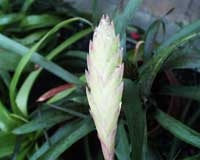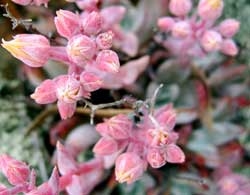Chinese scientists have announced the discovery of four new plant species from the Gentiana genus that can close their petals within seconds upon touch.
The discovery, led by Professor Dai Can from the School of Resource and Environmental Science at Hubei University, was made in the Qinghai-Tibet Plateau in northwest China.
According to research published in the journal Science Bulletin, the four new species belong to the Gentiana genus, including G. pseudoaquatica, G. prostrata var. karelinii, G. clarkei, and one unnamed species. With the ability to close their petals within 7 to 210 seconds after being triggered, these are the fastest-reacting flowers in the world.
The rapid movement of plants has always fascinated scientists and nature enthusiasts because, unlike animals, they are typically considered static organisms.
Only a few species are known to be able to open and close their leaves in a matter of seconds, such as the mimosa plant and the Venus flytrap. Prior to the discovery of Gentiana, the only plant group exhibiting petal-closing behavior when stimulated was the Drosera genus. However, even the fastest-reacting Drosera takes 2 to 10 minutes to completely close its petals.
“It is truly astonishing to witness with the naked eye. The Gentiana flowers disappear right before your eyes,” emphasized the lead researcher.

Gentiana flowers quickly close when affected by humans and insects.
The rapid petal-closing behavior of Gentiana may serve as a protective mechanism to prevent repeated intrusions by wasps. Due to the large size of these insects and their tendency to pierce the flower tube to extract nectar, 98.8% of the flowers that wasps “visit” exhibit petal closure, the study indicates. The damage to the flowers is significant, with nearly 80% suffering external damage and 6% sustaining damage to the ovary.
When touched, the flowers will close within 7 to 210 seconds, making them the fastest-reacting flowers in the world.
Researchers have yet to pinpoint the exact reason why these four Gentiana species close up so quickly, but they have several hypotheses.
While studying the flowers, they noted that these are favored by wasps. The touch-triggered closure mechanism of the flowers is an evolutionary means of protecting them from wasps, preventing the insects from collecting nectar.
However, another reasonable theory flips this situation on its head. These attractive flowers may encourage wasps to transfer pollen more effectively. When a flower closes, it signals to the insect that it has been visited before and that it should seek another Gentiana plant.
Scientists have not yet reached a definitive conclusion, but both theories are plausible.
Another possible explanation is that these plant species have evolved to encourage wasps to transfer pollen more effectively, as a closed flower signals to the insect that it has been visited previously and should look for another flower.





















































